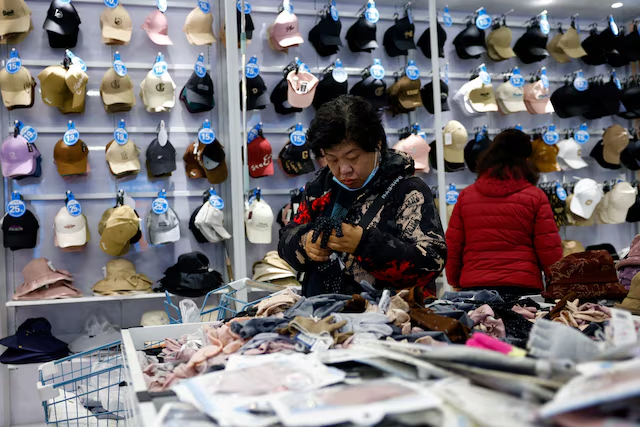China’s economy continues to struggle as factory-gate prices fell sharply in April, marking the steepest drop in six months. This, combined with a third consecutive month of declining consumer prices, underscores the urgent need for more government stimulus. A prolonged downturn in the housing market, high household debt, and job insecurity have already dampened investment and consumer spending, contributing to persistent deflationary pressures. Adding to the strain are external risks, particularly the ongoing trade tensions with the United States, which have been exacerbating the economic challenges.
The producer price index (PPI) dropped by 2.7% year-on-year in April, a deeper decline than the 2.5% fall in March, although it was slightly better than the forecasted 2.8% drop. This suggests that China’s economic slowdown remains a significant concern. Experts warn that the deflationary pressures could intensify in the coming months as the country’s exports are likely to weaken further, especially if trade relations with the U.S. do not improve. While there are hopes that trade talks between the U.S. and China, scheduled to take place in Switzerland, might ease tensions, analysts remain cautious about any substantial changes in tariffs.
Consumer prices also showed weak performance, dropping 0.1% in April, mirroring the decline seen in March. On a month-to-month basis, prices rose by just 0.1%, reversing a 0.4% fall in March, which had been a worrying signal. Core inflation, excluding volatile food and energy prices, stood at 0.5% year-on-year, in line with the previous month. This indicates that inflation remains muted across the broader economy.
In response to these economic challenges, the Chinese government has implemented various measures aimed at stimulating domestic consumption, including interest rate cuts and an increase in liquidity. Retail giants like JD.com and Alibaba-owned Freshippo are also adapting to the current environment by shifting focus from exports to domestic sales. However, this shift may further depress prices, as both business and consumer confidence remain low amidst the uncertain economic outlook. Global investment banks, including Goldman Sachs, have revised their GDP growth forecast for China downward, reflecting the ongoing strain caused by the trade conflict with the U.S.
READ MORE:
